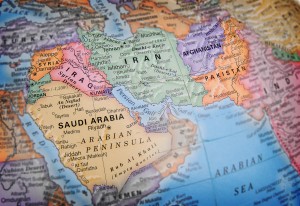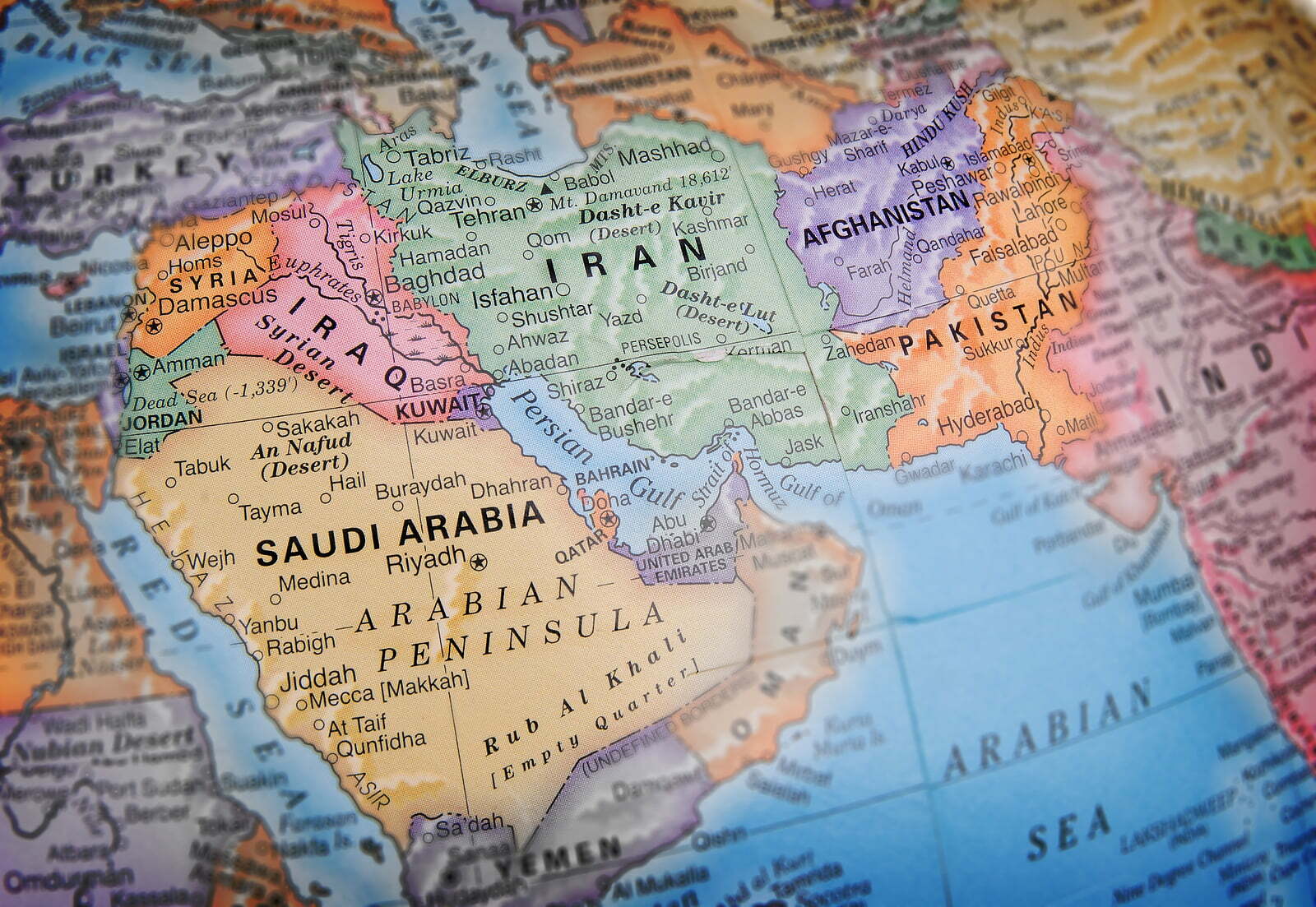By Richard Weitz
Today’s Iraq is an aborted democracy that falls considerably short of the original U.S. goal of creating an attractive democratic, prosperous, ethically mixed country that partners with the United States to maintain regional stability and security.
Iraq’s political leaders cannot cease feuding, wary investors hesitate to make the plunge in a country desperately seeking foreign capital and technology, and Iraq’s neighbors, though distracted by the other upheavals in the Arab world, nervously watch to see if the country’s sectarian tensions will escalate into renewed civil war or a proxy battlefield between Shiite Persian and Sunni Arab rivals.
Meanwhile, most Europeans and even Americans have lost interest in the country and now focused on Iran, China, and above all on their economic problems and heated domestic political contests.
Iraq’s historical legacy is rich in authoritarianism and internal and external conflict.

Like many Middle Eastern states, it suffered a colonial legacy of exploitation and artificial boundaries. Since independence, Iraqi leaders have experimented with different ideologies but regularly returned to a system of authoritarian rule that relies on power rather than justice for legitimacy. Iraq’s current instability is a direct product of this legacy of internal division, international pressure, and the exacerbation of sectarian tensions by brutal authoritarian rule.
The country’s numerous acute divisions between rich/poor, urban/provincial, Sunni/Shiite, Arab/Kurd, coupled with a century of limited popular political participation, has institutionalized suspicions among power-hungry factions and throttled consensus building around the country’s key political and social institutions. And as long as these remain weak and undeveloped, Iraq lacks a ready means to resolve political disputes among the country’s main societal forces.
The current manifestation of this crisis is evident in Prime Minister Nuri al-Maliki’s refusal to share power with his political rivals in the Iraqi National Movement bloc, led by Ayad Allawi, a former Iraqi prime minister.
Al-Maliki has monopolized all key national security posts in the hands of his Shiite-dominated State of Law Coalition, with the prime minister himself retaining several additional cabinet posts, such as the position of defense minister. He has also removed leading Sunnis from national and local offices on the grounds that they either have supported Saddam Hussein’s deposed Baathist regime or were aiding anti-Shiite terrorists.
Al-Maliki may very well believe he is acting in Iraq’s interest by seeking to provide the country with decisive leadership in Iraq’s time of troubles, but his confrontational style has prompted Allawi’s members to boycott parliamentary proceedings and energized autonomy movements in Iraq’s Sunni- and Kurdish-dominated provinces.
In response, al-Maliki has retaliated by arresting more senior opposition politicians and threatening to form a new government coalition without the Iraqi National Movement. At present, Iraqi politics is in deadlock. Al-Maliki’s powers are constrained by Iraq’s parliamentary and federal systems, while his opponents are weakened by divisions over ethnicity, region, ideology, and competing personal ambitions.
Though a return to civil war between Iraq’s Shiite and Sunni populations has been the most commonly evoked threat to domestic stability following the withdrawal of all U.S. troops in December 2011, it is possible that deepening tensions between Arabs and Kurds could result in open conflict as well.
The Kurdistan Regional Government (KRG) has taken steps toward strengthening its de facto autonomy, including in the area of foreign policy. It has developed trade and diplomatic connections with other countries, signed oil deals, and independently held meetings with foreign heads of state. These efforts reflect the Kurdish desire for a decentralized Iraqi government instead of the strong centralized state favored by al-Maliki but also by many other political leaders based in Baghdad. Iraq’s constitution recognizes the KRG and the Kurdistan Parliament as autonomous regional institutions, and the Peshmerga (Kurdish militia) as a legitimate regional military force.
Instead of law and order, the new Iraq is marked by corruption and chaos.
Justice is perverted because the law has become an instrument to hobble political rivals and exploit opportunities for corruption. Political parties are weak while clan, sectarian, and especially family ties are strong, resulting in family fiefs and nepotism throughout the bureaucracy.
And when the law proves inadequate, then the political leaders and factions employ their ruthless security forces to suppress adversaries, sometimes torturing them in private detention centers, and to cow the population at large. Politicians aspire to become another Saddam Hussein who can rule without constraints, if not in all Iraq, than at least in those parts that fall under their control.
Iraqis are living in fear of renewed outbreaks of mass sectarian violence, manifested in strife between the so-called Islamists and the Shiite militias. Despite billions of dollars of U.S. investment, Iraqis suffer from inadequate public services.
They also fear their country’s deepening division into cantons and the interference of neighboring countries, some with predatory aims, in Iraq’s internal affairs.
Despite its incomplete and perverted application, Iraq’s constitutional and political framework seems adequate to giving Iraqis a better life. The problem is more one of political culture, degraded by years or authoritarian rule and political strife, as well as the past months of ethnic, tribal, and religious divisions and protracted political infighting.
Time is needed for the influence of sectarianism to decline and democratic and pluralistic practices to take root. Iraqi politics will become more stable when Iraqis see themselves less often as Sunnis, Shiites, and Kurds, and more in terms of their occupation (laborer, business person, etc.) political affiliations (liberal, conservative), and other sources of identity.
This can best be accomplished through a broadly inclusive coalition government that would not leave any important Iraqi religious, ethnic, or political group politically excluded and alienated. The continued devolution of some governing powers to federal bodies is also essential for checking a return to centralized authoritarian rule as well as empowering local political participation.
Another important task is to restructure Iraq’s security forces to ensure that they become more effective and less prone to potentially explosive internal divisions.
At present, Iraq’s security conditions are worrisome but not alarming. Whereas Iraq did not have a functioning army, air force or navy in the months immediately following the 2003 Anglo-American invasion, the Iraqi Security Forces (ISF) now number more than 700,000 people in the aggregate.
Although various insurgent and terrorist groups are able to detonate bombs targeting police officers and hapless civilians, they are no longer able to hold Iraqi territory in the face of sustained ISF action. And Iraq’s neighbors, though perhaps uneasy about the course of events, have refrained from intervening with conventional military forces in Iraq.
But neither of these conditions is predestined to last forever. Iraq’s territorial integrity remains precarious.
Iran continues to lay claim to its petroleum-rich border region with Iraq. The porous frontier with Syria continues to see mass refugee flows in both directions while Sunni terrorists exploit the lax border controls to kill people in both countries. The Turkish military regularly attacks Kurdish terrorists in northern Iraq and sometimes send ground troops into Iraqi Kurdistan despite Baghdad protests.
Strengthening the ISF requires progress in three dimensions.
First, Iraq’s security forces need to continue to develop the capacity to suppress the remnants of anti-government insurgent groups.
Second, the ISF must achieve the capacity to defend Iraq from potential future foreign aggressors.
Third, Iraq needs to develop an effective and mutually acceptable military partnership with the United States.
Iraq’s oil wealth and powerful military has historically made it a claimant for Arab leadership, while its geography and ethnic mix have required both limiting and managing its powerful Persian Shiite neighbor. Now that all U.S. troops have withdrawn from Iraq, neighboring powers are actively maneuvering to advance their interests in the new environment.
Iran and the Gulf Cooperation Council (GCC) states, led by Saudi Arabia, have been the most prominent rivals for influence in Iraq, competing directly and through local proxies.
Saudi Arabia, Kuwait, and other GCC governments oppose Tehran’s ambitions but lack the means to balance Iranian influence in Iraq, so they appear to be turning to Turkey to defend Sunni interests there.
Iran has become the most influential foreign actor in Iraq due to geographic proximity, Iraq’s newly self-conscious and empowered Shiite majority that respects Iran’s centrality to the Shiite faith, and influential pro-Iranian factions embedded within Iraq’s political, military and religious establishments. Iran also enjoys clear military superiority over Iraq’s armed forces in eastern Iraq. Iranians want Iraq to remain under the control of a subservient pro-Tehran coalition in Baghdad that does not challenge Iranian military primacy in the Persian Gulf.
The two countries have signed more than 100 economic cooperation agreements, with bilateral trade reportedly reaching $7 billion in 2009 and Iranians heading numerous reconstruction projects in Iraq. Iran has made up for Iraq’s electricity shortages by supplying about 10 percent of Iraq’s needs, and the percentage is much higher for several border provinces.
Iran’s main exports to Iraq include fresh produce, processed foodstuffs, cheap consumer goods, cars and construction materials such as cement, glass and bricks. Iraqi exports to Iran consist largely of crude and refined oil products.
Iran’s economic ties with Iraq are especially important given all the sanctions constraining Iranian economic exchanges with other countries. In March 2008, Iranian President Mahmoud Ahmadinejad became the first Iranian president to visit Iraq since Iran’s 1979 Islamic Revolution. Al-Maliki has made several state visits to Iran since 2006.
Although ties between Iran and Iraq are strong, unresolved sources of tension persist.
In dumping cheap, subsidized food products and consumer goods into Iraq, Iran has undermined Iraq’s agricultural and manufacturing sectors. Iran’s damming and diversion of rivers feeding the Shatt al-Arab waterway has harmed Iraqi agriculture in the south and hindered efforts to revive Iraq’s marshlands. Iran’s periodic border incursions, such as against the Fakka oil field in late 2009, sustain Iraqi suspicions regarding Iran’s ultimate intentions for their country.
The incursion is also one of several examples of how Iran’s policy toward Iraq has at times lacked consistency. Iranians have publicly supported the Iraqi government while at the same time assisting violent militias that undermine Baghdad’s authority. Iranian efforts to influence Iraqi politics have also been poorly integrated with other activities, such as Iranian pressure regarding border disputes or heavy-handed efforts to influence Iraq’s religious community.
Despite these intra-governmental coordination problems in Tehran, Iranian influence in Iraq will remain strong due to the strength of Iranian friendly forces in Baghdad, the ethnic and sectarian divisions debilitating Tehran’s opponents in Iraq, and the decreased influence of the United States and its local allies in Iraq.
Turkey perhaps presents the strongest counterweight to Iranian influence in Iraq. As the main successor state to the Ottoman Empire, Turkey’s relations in the Arab world have traditionally been fraught with ambivalence. Turkey and Iraq have long fought over water access and accused each other of supporting Kurdish terrorists.
Although opposing the invasion of Iraq in 2003 by U.S. forces, Turkey took advantage of the lapse in sovereignty in Iraq’s northern Kurdish region to carve out a sphere of influence. More recently, Turkey has emerged as an important actor in the Iraqi economy by investing heavily in key sectors of the Iraqi economy.
Turkey’s relations with the KRG are especially good, with Turkey providing Iraqi Kurds with their main foreign economic partners and receiving extensive KRG cooperation against the PKK insurgents based in northern Iraq.
Yet, the United States and other states should be cautious about seeking to use Turkey as a proxy against Iran. Turkey can best advance U.S. interests in Iraq when it is not seen as an instrument of U.S. foreign policy.
For our special report on Turkey see
https://www.sldinfo.com/special-report-update-on-turkey/
For part 2 of the series go to
https://www.sldinfo.com/new-dawn-2012-the-historical-backdrop/


